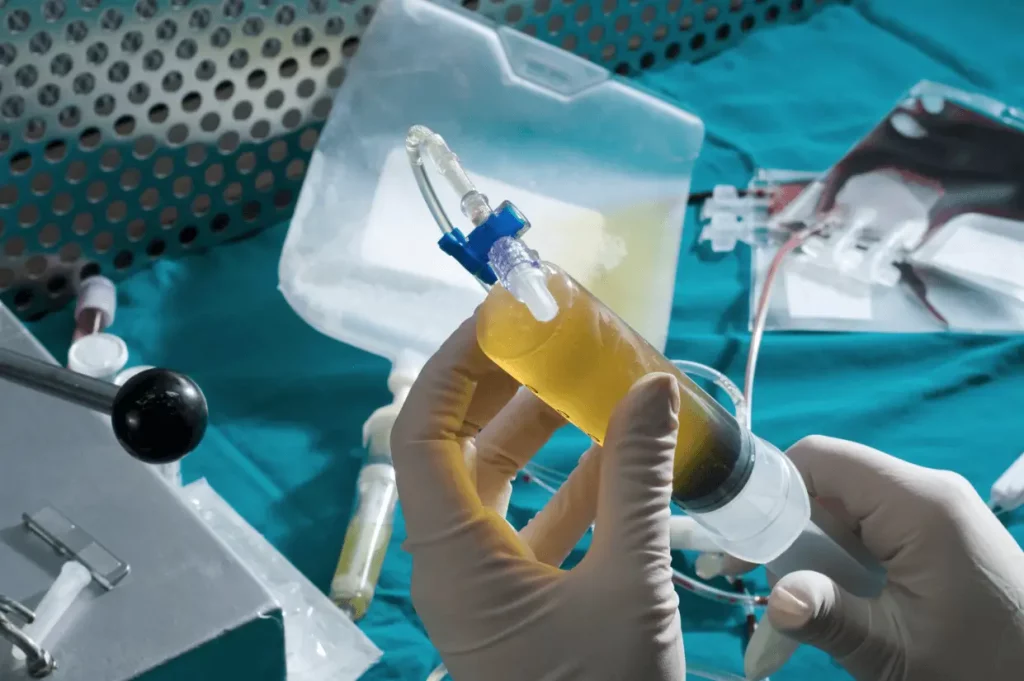Regenerative Medicine with Stem Cells for Spinal Disorders
Introduction: The Future of Medicine Is Already Here
Regenerative medicine using stem cells is one of the most promising revolutions in the treatment of spinal conditions. Far from being a passing trend, this biomedical discipline is steadily advancing toward the goal of restoring damaged structures, regenerating tissues, and significantly improving the quality of life of patients with degenerative disorders—often without the need for invasive surgery.
At Complex Spine Institute, we incorporate this therapy as part of a comprehensive and personalized treatment approach, combining precision neurosurgery, advanced orthopedic surgery, and regenerative therapies that promote faster recovery with less pain and minimal functional disruption.

What Is Regenerative Medicine with Stem Cells?
Regenerative medicine relies on the use of stem cells—also known as progenitor cells—to repair or replace tissues damaged by injury, aging, or degenerative disease. The mesenchymal stem cells we typically use are harvested from the patient’s own bone marrow or adipose tissue. These cells have a remarkable capacity to:
- Differentiate into various cell types (bone, cartilage, muscle).
- Modulate inflammatory environments within damaged tissues.
- Stimulate cellular and vascular regeneration.
- Inhibit degenerative processes.
These properties make stem cell therapies suitable not only for sports or joint injuries, but also for complex degenerative spine disorders such as disc disease, stenosis, herniated discs, and failed back surgery syndrome.
What Conditions Do We Treat with Stem Cells?
In our clinical practice, we use regenerative techniques either as a complement to surgery or as an alternative. The most common indications include:
- Lumbar and cervical disc herniation
- Degenerative disc disease
- Failed back surgery syndrome
- Facet joint osteoarthritis
- Chronic lumbar or cervical pain with no immediate surgical indication
- Mild to moderate nerve root compression
- Early spinal canal stenosis
This therapy can also be used post-surgery to accelerate healing and reduce persistent pain.
How Is Stem Cell Therapy Performed?
The treatment process begins with a thorough clinical and radiological evaluation. We then design a customized therapeutic plan. At Complex Spine Institute, the procedure includes:
- Harvesting stem cells from the patient’s own bone marrow or adipose tissue.
- Processing the cells under sterile and controlled conditions.
- Image-guided reinjection into the affected area (intraoperative imaging or ultrasound guidance).
Most procedures are performed on an outpatient basis or require only a short hospital stay.
“We apply stem cell therapies to regenerate muscle, disc, and joint tissues in patients with degenerative or post-surgical conditions. The treatment is well tolerated and has significantly improved symptoms in clinical profiles previously lacking viable non-surgical options.”
— Dr. Augusto Covaro
Clinical Outcomes and Real-World Experience
With over a decade of experience using regenerative medicine, we can confidently say that when properly indicated and executed, this treatment significantly improves quality of life, reduces pain, and enhances functionality for many patients.
“In patients with multiple disc pathologies or previous surgical failures, we have achieved functional improvements without reoperation. In some cases, regenerative therapy has served as a bridge to less invasive or more targeted surgery, avoiding extensive procedures.”
— Dr. Vicenç Gilete
Most patients return to their daily routines within days of treatment, with high satisfaction rates and minimal complications. Safety remains one of its main advantages.
Scientific Basis and Biomedical Evidence
Recent scientific literature supports the use of mesenchymal stem cells in musculoskeletal disorders. Their immunomodulatory and anti-inflammatory properties, combined with regenerative potential, justify their growing use in specialized centers like ours.
Stem cells not only aid in tissue regeneration but also alter the inflammatory microenvironment—reducing pro-inflammatory cytokines and enhancing growth factors that support tissue repair.
When Is Stem Cell Therapy Not Indicated?
Not all patients are candidates for this therapy. Severe neurological compression, clear biomechanical instability, fractures, tumors, or active infections may require alternative or more invasive approaches.
Proper patient selection is essential for successful outcomes. For this reason, we always conduct a thorough evaluation including medical history, imaging studies, and the patient’s functional goals.
Integrative Approach to Regenerative Medicine
At Complex Spine Institute, regenerative medicine is never a standalone solution. It is part of a broader therapeutic strategy that includes:
- Personalized patient evaluation.
- Advanced imaging technologies for treatment planning.
- Integration with minimally invasive surgery when needed.
- Post-treatment support and rehabilitation.
This comprehensive model allows us to deliver long-lasting, tailored, and effective solutions with maximum safety and efficacy.
Why Choose Complex Spine Institute?
- Our team includes neurosurgeons and orthopedic spine surgeons with high specialization.
- We perform over 50 complex cranio-cervical procedures annually.
- Our regenerative medicine unit is part of a high-level surgical environment, ensuring complete patient care.
- We use cutting-edge technology and follow up-to-date clinical protocols.
We treat patients from around the world, in multiple languages, offering personalized care from day one.
Conclusion
Stem cell-based regenerative medicine is an effective reality in treating spinal disorders, especially degenerative diseases and chronic pain. In expert hands, it’s a powerful tool for restoring function and quality of life to patients who once had only surgery or palliative care as options.
At Complex Spine Institute, we offer real solutions backed by science, experience, and the latest medical technology. Our mission is to help you move again—pain-free, safely, and confidently.